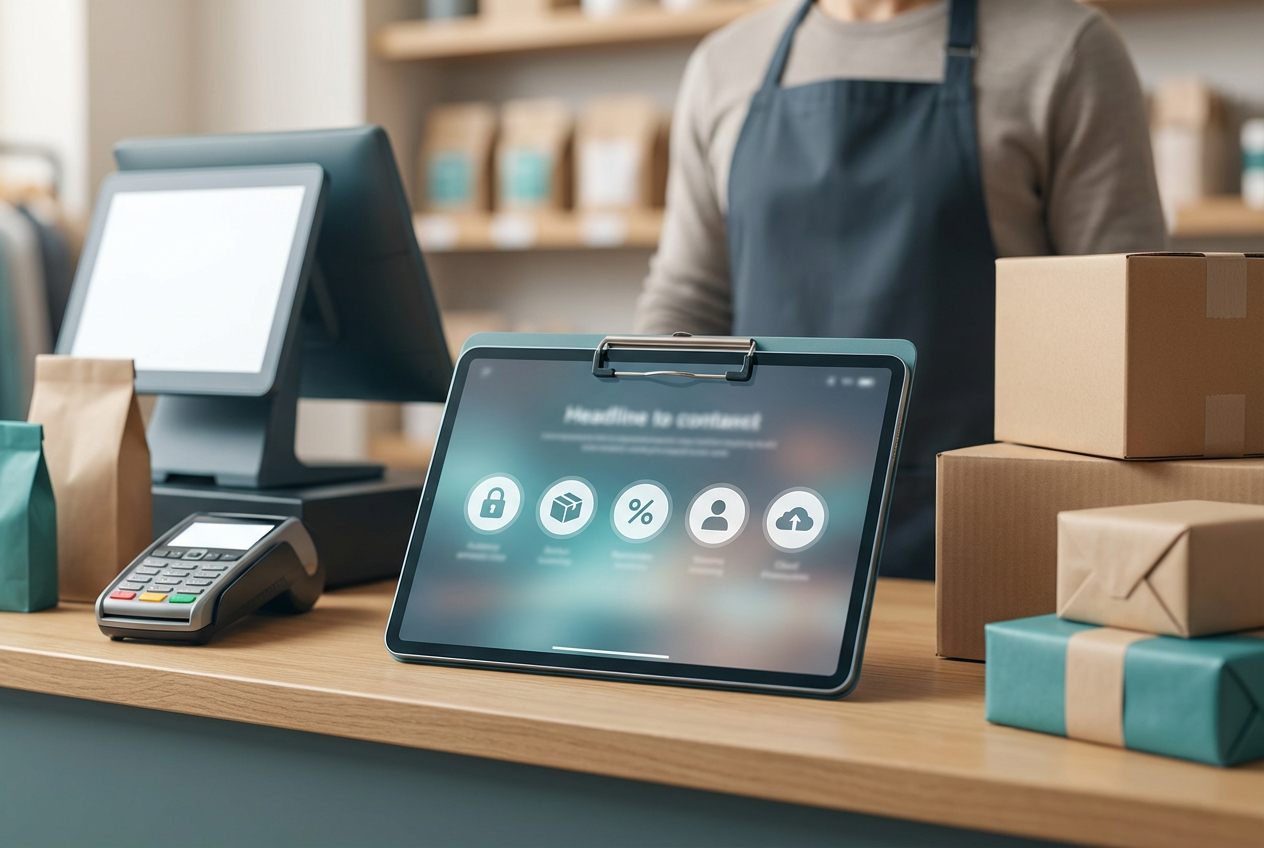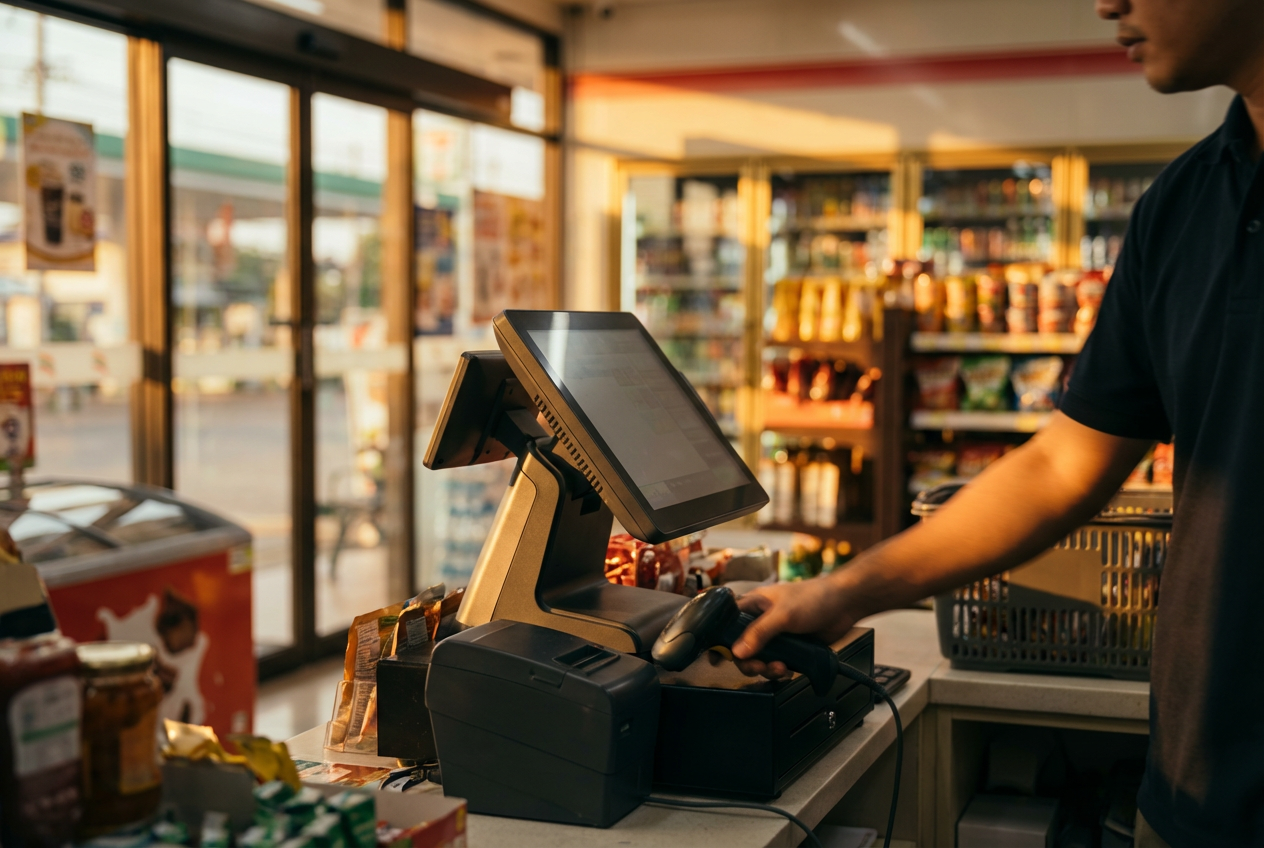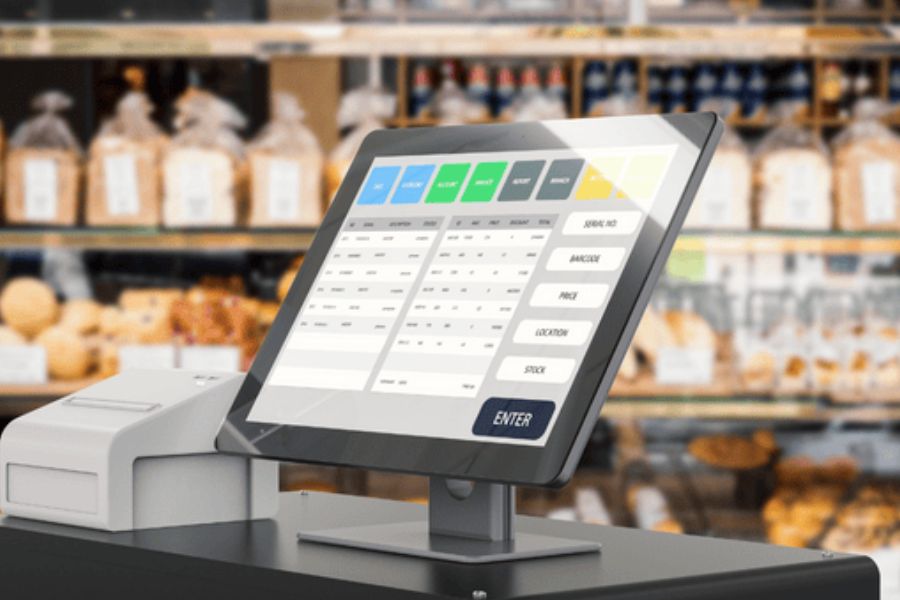Finding the right furniture store POS Thailand retailers can count on isn’t just about ringing up sales. It’s about managing long lead times, bulky stock, and complex product options without breaking a sweat. As showrooms blend with websites, Thai businesses need smarter tools to run both sides of their operations. We’ve broken down 5 standout POS systems built to handle the unique demands of the furniture industry.
Highlights:
- A strong furniture POS in Thailand should handle large catalogs, local payments, split transactions, and real-time sync across all channels, even when the Wi-Fi drops.
- The top 5 furniture store POS systems in Thailand for 2026 are ConnectPOS, Lightspeed Retail, Magestore HomeGear, Tagrain Retail POS, and Erply Retail POS.
Thailand’s Furniture Retail Scene in 2026
Thailand’s homeware market isn’t slowing down. According to Statista, Thailand’s home décor market is set to reach US$453.46 million in revenue this year, according to Statista. From 2025 to 2029, it’s expected to grow at 2.22% annually, driven by a mix of rising urban homeownership and strong local demand for both modern and traditional aesthetics.
What’s driving the shift? Part of it is convenience. Consumers now browse online but still want to feel fabric swatches or test drawer runners before pulling out their wallets. That hybrid behavior has turned ‘brick-and-click’ into the default. Showrooms act as experience zones, while online carts stay loaded until payday.
It’s also about lifestyle. Homeownership among young Thais is rising, and they’re choosing modular shelving over bulky cupboards. Quick delivery matters. So does color coordination. These aren’t impulse buys. They’re calculated, compared, and then purchased across multiple channels. To win them over, stores need to sync inventory, run accurate deliveries, and offer smooth payment options. That’s where smart POS systems come in.
Characteristics of Furniture Stores & Why They Need a Specialised POS
No two armchairs are alike, and neither are the systems behind them. A typical furniture store handles thousands of SKUs, each with combinations of sizes, colors, fabrics, or finishes. Matching stock across branches while tracking what’s on display, what’s in the backroom, and what’s in transit can get messy fast.
Then there’s how people pay. High-ticket items often come with custom orders, lay-bys, or deposits split over weeks. Some shoppers might need to compare quotations across styles. Others want to pay by bank transfer after confirming delivery. A standard POS isn’t built for that.
Shipping also adds layers. Beds and bookshelves don’t go out in padded envelopes. Shops juggle warehouse transfers, white-glove delivery schedules, and third-party logistics. McKinsey finds that almost half of omnichannel consumers switch retailers when delivery speeds disappoint, highlighting how a lapse in fulfilment can wipe out sales in an instant. A good POS needs to connect all the moving parts. When it doesn’t, problems show up fast: late deliveries, double-booked stock, and customers who walk away frustrated.
So a general retail system won’t cut it. Furniture stores need tools tailored to their complexity. The best systems don’t just track sales. They bring order to the chaos behind the scenes.
Key Criteria for Choosing a Furniture Store POS in Thailand
Plenty of POS systems can handle a quick sale. But when it comes to managing large catalogs, complex payments, and showroom coordination, most fall short. Thai furniture retailers need more than just a digital register. They need a system built for how they work and sell.
- Inventory depth: The right POS should manage large product catalogs with ease. It should also support product bundles, such as bedroom or living room sets, track variants, and help forecast reorder points before stock runs low. Leading solutions for the home & furniture sector often come with these advanced inventory features.
- Omnichannel sync: Sales occur across websites, marketplaces, and in-store locations. A strong POS keeps everything in sync. Inventory updates in real-time, so no matter where the shopper checks, the information is accurate.
- Flexible payments: Big-ticket items often come with customized payment plans. A good system supports deposits, split payments, and lets customers complete bank transfers without extra admin.
- Offline mode: Internet drops shouldn’t stop sales. POS systems in Thailand must work smoothly during network hiccups, especially in areas where Wi-Fi isn’t always reliable.
- Thai payment rails & language packs: Local payment methods matter. Look for POS systems that support PromptPay QR, Thai-language receipts, and currency rounding in baht.
- Local support & pricing: When things go wrong, support shouldn’t be on another continent. Choose providers that bill in baht, file VAT reports correctly, and have teams based in Bangkok or nearby.
Choosing the right furniture store POS Thailand retailers trust isn’t just about tech. It’s about fit. The closer the system matches the way stores operate, the fewer the headaches down the line.
►►► Optimal solution set for businesses: Multi store POS, Next-gen POS, Inventory Management Software (MSI), Self Service, Automation, Backorders

The 5 Best Furniture Store POS in Thailand in 2026
Finding a system that truly works for furniture shops in Thailand means narrowing down those that can actually support long-lead items, complex orders, and high-value payments. We’ve broken down the top five solutions that do just that. Let’s start with one that’s already trusted across Southeast Asia.
ConnectPOS – Best Furniture Store POS
ConnectPOS is a standout furniture store POS Thailand businesses rely on for one reason. It’s built to handle complexity without becoming complicated. Whether you’re managing online orders, showroom sales, or warehouse transfers, the system syncs it all in real time. Thai retailers like Yeti Cycles and Departure Thailand have already made the switch, and the results speak for themselves.
Key features:
- All-in-one omnichannel POS: ConnectPOS ties together POS, self-checkout, mobile solution, and inventory management software for a truly unified retail journey. This setup works well for hybrid showrooms and online-first brands.
- Modular and scalable system: Expand store locations or scale product lines without rebuilding your system. The POS grows alongside your sales and inventory volume.
- Real-time inventory sync: Track vendor stock levels, fulfill custom orders, and keep warehouse transfers accurate. Everything updates in seconds across all locations.
- Custom product attributes: Showcase options like size, fabric, wood finish, or color directly in the POS. Built-in customization matches furniture shopping behavior where visuals and specs matter.
- On-time order fulfillment: Manage sourcing, delivery, and warehouse transfers in one place. The system automates handoffs between back office and front-of-house.
- Self-checkout and mobile POS: Speed up the buying process with mobile app browsing and three-step checkout. Empower staff or let customers shop independently.
- Payment flexibility: Accept split payments, deposits, layaways, BOPIS, and QR code checkout. Works across payment gateways and channels without extra add-ons.
- Loyalty and incentives: Activate built-in store credits, rewards, and gift cards. Recommend matching pieces or full combos to lift AOV and encourage full-space purchases.
- Thai-ready setup: Generate VAT-compliant receipts in Thai, round totals in baht, and support PromptPay. Perfect for businesses serving local shoppers or tourists.
- Tailored assistance: ConnectPOS offers personalized support across time zones. Help is always available, whether you’re setting up or scaling out.
- Enterprise-ready integrations: Plug in eCommerce platforms, ERP systems, CRMs, and accounting software. It’s built for seamless data movement, not tech headaches.
Lightspeed Retail
Lightspeed is known for its polished interface and strong eCommerce links. It’s great for home decor and furniture chains that want solid reporting tools without sacrificing usability.
Highlights:
- Deep inventory tools for bundles and composite items
- Built-in report & analytics to to track demand across seasons
- Google Local Inventory Ads integration to bring more foot traffic
- Custom orders, quick checkout, and employee management
- Built-in payments with transparent fees
Magestore Home Goods & Furniture POS
Magestore is ideal for Magento POS-powered retailers. Its POS is native to the platform and supports real-time sync between physical stores and online catalogs.
Highlights:
- Full Magento-native integration
- Multi-warehouse inventory sync
- Barcode and SKU management for large catalogs
- Flexible order fulfillment (BOPIS, dropship, delivery)
- Loyalty programs and gift card management
Tagrain Retail POS
Tagrain targets small and mid-sized businesses in Thailand with a clean, simple setup. It’s cloud-based and designed to get stores up and running quickly without complex onboarding.
Highlights:
- Quick setup with demo data
- Thai-language support and baht billing
- Works offline with auto-sync
- Shopify POS and Xero integration
- Built-in customer loyalty and reporting tools
Erply Retail POS
Erply brings a flexible system for retailers that need serious warehouse control. Its strength lies in inventory, payments, and multi-store management.
Highlights:
- Mobile stocktaking and order fulfillment
- Employee time tracking and scheduling
- Multi-currency support and regional payments
- Strong reporting and dashboard tools
- Compatible with Inventory.com for online selling
Each POS system on this list brings its own strengths. But for Thai retailers dealing with complex furniture operations, ConnectPOS consistently leads where it matters most.
Side‑by‑Side Feature Snapshot
We compared the top furniture store POS Thailand retailers are using across functions that matter most: inventory, payments, offline reliability, and local readiness.
| Feature | ConnectPOS | Lightspeed | Magestore | Tagrain | Erply |
| Inventory Depth | Bundles, variants, forecasting | Composite products | Large SKU catalogs, PO tools | Basic bundling | Multi-warehouse control |
| Omnichannel Sync | Real-time across channels | Web and store sync | Magento-native sync | Shopify integration | Inventory.com integration |
| Payment Flexibility | Deposits, PromptPay, split payments | Credit cards, Apple/Google Pay | Store credit, loyalty points | Basic cash and split pay options | Multi-currency, custom setups |
| Offline Capability | Full offline mode | Partial offline mode | Offline order processing | Syncs post-connection | Strong offline tools |
| Local Support & Compliance | Thai VAT, baht billing, Thai receipts | No Thai-based support | Best for Magento users in Thailand | Thai billing and language support | Support based outside Thailand |
Implementation Roadmap for Thai Furniture Retailers
Installing a new POS shouldn’t slow down business. A structured rollout keeps teams focused and operations stable during the switch.
- Audit existing SKUs and warehouse processes. Know what’s in stock and how it moves before changing systems.
- Map online‑to‑showroom workflows. Define how orders move between website, showroom, and storage.
- Run a two‑week pilot on the POS with real product data. Start small, observe flow, and adjust configurations.
- Train staff and establish KPI checkpoints at 30 and 90 days. Focus on speed, accuracy, and ease of use.
This approach keeps operations stable while giving teams space to adapt.
FAQs: Furniture Store POS Thailand
1. What are the typical hardware costs for a furniture store POS system in Thailand?
Most systems cost between 20,000 and 60,000 baht for basic hardware. Larger stores may need setups over 100,000 baht depending on devices.
2. Do POS systems in Thailand support PromptPay QR code payments?
Yes. PromptPay QR is widely supported across most major POS platforms.
3. Can POS systems generate receipts in the Thai language?
Absolutely. Thai receipts are common, especially for tax compliance and customer clarity.
Final Thoughts
Furniture stores in Thailand need more than a basic POS. From large catalogs to showroom pickup and split payments, complexity is part of the job. The right furniture store POS Thailand should handle it all without slowing teams down. Among the options, ConnectPOS stands out for its local compliance, customizable flows, and real-time visibility across all touchpoints.
Want to simplify your operations and start selling smarter? Reach out to us and let ConnectPOS tailor the right solution for your furniture business.
►►► Optimal solution set for businesses: Shopify POS, Magento POS, BigCommerce POS, WooCommerce POS, NetSuite POS, E-Commerce POS




